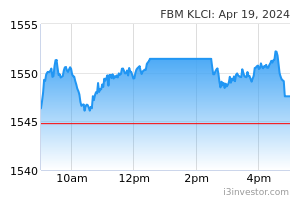Politics and Policy: DAP’s in-or-out dilemma

ON New Year’s Eve, MCA spokesperson Chan Quin Er asked whether the police would be releasing, on that very day, details of the analysis by a US expert on a sex video that was said to involve a Malaysian politician. She was referring to the video allegedly linked to Economic Affairs Minister Datuk Seri Azmin Ali.
The reason she raised that poser on Dec 31 was that federal police CID director Datuk Huzir Mohamad had announced in November that the results of the analysis were expected “by the end of the year”.
Based on that, MCA issued a statement that, among other things, said, “Today is Dec 31. The year and decade will end in a few hours’ time. We have yet to hear anything about the result of the said analysis or even the name of the American university to which the video was sent for analysis.”
Chan or her party were not the only ones that spoke up on the matter. Many others had asked the police the very same question. (For the record, on Jan 9, Attorney-General Tan Sri Tommy Thomas announced that no one would be prosecuted over the video because identification could not be conclusively done based on facial recognition analysis.)
Nonetheless, this article is not about the video but DAP. Somehow, DAP found itself dragged into the polemics surrounding the issue. Apparently, quite a number of people, especially the Chinese who claimed to have voted for the party, are accusing DAP of being quiet over the video issue. Whether it is true or not, that is the perception.
The video aside, DAP is seen as being either silent or unable to act or to do the right thing about issues viewed seriously by non-Muslims, particularly the Chinese.
“The Dong Jiao Zong congress fiasco has made it clear — once as ferocious and aggressive as a tiger, DAP has now been reduced to a docile and obedient puppy,” said Francis Paul Siah in his column in Malaysiakini. The congress was scheduled for Dec 28 to discuss the controversy over the teaching of Jawi in schools. However, it was called off after police obtained a court injunction to stop the event, citing security concerns.
The columnist opined: “DAP is only effective as an opposition party. It is out of place in government.”
Taking up the issue, former ambassador Dennis Ignatius, in his column, asked: “Should DAP leave the government?”
As Ignatius sees it, “After fighting for and dreaming of a place at the table for years, DAP is now discovering that being part of the government, at least part of a Dr Mahathir Mohamad-led government, can be bittersweet.”
“With frustration growing among its grassroots supporters and consensus breaking down within the party’s top leadership, pulling out of the government is no longer as unthinkable as it might have been 19 months ago,” he observes.
To its critics, DAP is playing ball and being subservient to Tun Dr Mahathir Mohamad, who is criticised for what his detractors say are abuses of power.
But the problem now faced by DAP has cropped up before. I have written about it previously, including once in August last year about the “predicament of DAP” with regard to the khat/Jawi issue as well as the Lynas controversy.
There were calls then for DAP to quit Pakatan Harapan, prompting Johor DAP chief Liew Chin Tong to respond, saying: “Talk of DAP quitting Pakatan Harapan at all costs is just going to destroy the fruits of democracy won on May 9, 2018 and to open the door for Umno and PAS to return to rule.”
Despite Ignatius’ view that pulling out of the government is no longer unthinkable, I would say Liew’s opinion still stands, although I was not able to get his latest thoughts on the subject at the time of writing.
But Perak DAP vice-chairman Aziz Bari responded, saying: “DAP is committed to the PH government’s ideals and there is no question of leaving. It’s just silly even to contemplate.” Further, he said: “DAP would take the bull by its horns. It’s not in the character of DAP to run away or abandon government.”
According to a political observer, accepting the proposal to quit Pakatan Harapan “would mean conceding to the Malay right and assume that all Malays are right wing, too, and assume there is no middle ground. The proposal to leave is like asking us to hasten the pace of apartheid when it is not there.”
Another opines that it would not do the Chinese any good if DAP is not in government.
A veteran journalist says the right question to ask is: Do DAP supporters want the party to leave the PH government? A party activist responded by saying: “If they want it, they will voice it out openly. And we hear nothing of that sort, right? There is criticism, yes. That’s democracy.”
In the khat controversy, the right-wing Malays say DAP is dead against Jawi, hence the party is anti-Islam. The Chinese, on the other hand, are led to believe that DAP is supportive of the Jawi move because its leaders want to keep their comfy positions in government.
Now, we have Maszlee Malek’s resignation. The opposition parties, in particular PAS, are telling Malays his resignation as education minister is DAP’s victory, as the party had all the while wanted him out for his role in promoting the Jawi syllabus and his perceived support of preacher Zakir Naik. Malays are being told this is yet another proof that Mahathir is bowing to DAP.
But the Chinese say DAP is subservient to Mahathir and dare not criticise the PM at all.
I cannot help but ask: Can a party lead Mahathir by the nose and kowtow to him at the same time?
Mohsin Abdullah is a contributing editor at The Edge. He has covered politics for more than four decades.
( 24,36 % )
( 39,38 % )
( 36,26 % )


